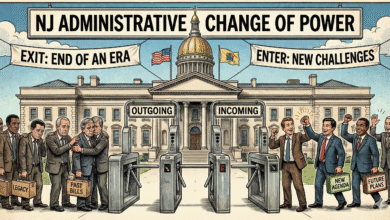A Cultural Crossroads In recent years, tensions between Foundational Black Americans (FBA) and members of the broader African diaspora—including Caribbean and Continental African communities—have grown more visible and vocal. These conversations, often charged with emotion and historical baggage, reveal a deeper crisis: the lack of a coherent and collectively embraced Black American culture. While history serves as the foundation, it is not culture itself. And therein lies the crux of the misunderstanding: FBA often conflates history with culture, leaving a vacuum that foreign traditions can easily and understandably fill.
The Difference Between History and Culture History is the record of what happened: enslavement, resistance, Reconstruction, Jim Crow, civil rights, and systemic exclusion. It is backward-looking, analytical, and evidentiary. Culture, by contrast, is about how people live, what they value, how they express themselves, and how they create meaning. It is embodied, evolving, and deeply affective.
Black American culture, when mistaken for Black history, becomes reactive rather than generative. It becomes a museum of suffering rather than a living, breathing system of beliefs, aesthetics, and rituals. This distinction matters profoundly, especially when negotiating identity in a multicultural, globalized context.
The Cultural Vacuum Within FBA Because of the historical ruptures wrought by brutal chattel slavery—forced language loss, banned spiritual practices, family separations, and systemic violence—FBA communities have often struggled to articulate a coherent cultural system independent of trauma. The psychological toll of this system still reverberates today: latent anger, a fractured sense of belonging, and a persistent need to both own things and also belong to something larger.
What exists culturally is powerful but fragmented: coded language, style, music, foodways, and spiritual practices that emerged as survival technologies. These are significant, but they lack the unified cosmology or ritual frameworks that other diasporic groups may inherit more directly.
This vacuum is not a failure of FBA communities; it is the consequence of systemic disruption. But it does create a vulnerability: when culture is undefined, it becomes open terrain for external influence.
The Dominance of African and Caribbean Cultural Frameworks Caribbean and African immigrants often arrive in the U.S. with intact cultural identities—language, food, music, religion, naming practices, and a shared historical memory rooted in nationhood. This can make their cultural expression appear “stronger,” “richer,” or more “authentic” to outsiders and even to younger Black Americans seeking roots.
To some in the FBA community, this can feel like cultural overreach or erasure. But the reality is simpler: when a vacuum exists, something will fill it. African culture seems dominant not because it is invading but because it is cohesive.
There are parallels worth noting: countries like Haiti and South Africa, which also experienced violent histories of slavery or apartheid, exhibit some of the same cultural signatures seen among FBAs—deep mistrust, resilience-based identity, and intense internal debates about authenticity and ownership. This is not coincidence; it is the residue of cultural devastation and forced reinvention.
The Cost of Conflating History with Culture When FBAs treat history as culture, they create a cultural identity based primarily on what was done to them rather than what they do or believe now. This results in:
- Symbolic politics over lived ritual
- Trauma performance over cultural continuity
- Nostalgia over innovation
Without a coherent cultural identity, it becomes difficult to unify politically, economically, or socially. The community becomes reactive, fragmented by internal debates and external pressures.
A Flashpoint: The Essence Festival Rift The recent online backlash surrounding Essence Festival—captured in public commentary and responses to coverage such as this video—has exposed some of these internal rifts. Criticism from some FBA voices framed the event as being overtaken by African and Caribbean influence, citing concerns of erasure and inauthenticity. Yet, this criticism often failed to reckon with the larger issue: the absence of a clearly defined, agreed-upon FBA cultural identity. Without this, any perceived dominance by other groups becomes a cultural threat rather than an opportunity for solidarity or synthesis.
Toward a Shared Black American Culture What’s needed is not exclusion, but synthesis. A shared Black American culture must:
- Acknowledge the trauma and resilience of history without mistaking it for culture
- Codify and elevate existing practices: from cuisine to language to spirituality
- Welcome contributions from the diaspora while maintaining cultural sovereignty
- Center values like community care, innovation, spirituality, and creative expression
This shared culture does not need to be homogenized; it must be harmonized. Think jazz, not unison.
Filling the Void with Intention The divide between FBA and the broader African diaspora is not just about who gets to claim authenticity. It’s about the deeper question: what does it mean to be culturally whole in a context designed to erase you?
By separating history from culture, by acknowledging the vacuum and intentionally filling it, FBAs can reclaim authorship over their identity. This is not about choosing between past and present, or America and Africa. It’s about building a future with cultural clarity, communal direction, and mutual respect.
